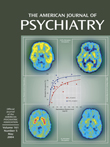Dr. Lohr Replies
To the Editor: Dr. Balon, although not in favor of the term “atypical antipsychotics,” also questions the use of the term “second generation” for several reasons: primary issues of what the medications have in common and how they differ from previous medications. The newer antipsychotic medications (clozapine can also be considered newer than previous medications) do share a number of features, however, especially their reduced propensity to cause extrapyramidal side effects, which is shared by risperidone. So we believe that these medications do merit being associated with one another and differentiated from previous antipsychotic drugs.
Drawing a parallel with antidepressants, we believe, is confusing because antidepressants have long been named for their putative mechanism of action (such as monoamine oxidase inhibitors or selective serotonin reuptake inhibitors) or by their chemical structure. Unfortunately for antipsychotic medications, the chemical structures vary widely, and the mechanisms of action are largely unknown. Although the term “serotonin-dopamine antagonists” has been used, it is not clear to what extent serotonin antagonism contributes to the specific effects and side effects of these drugs. Also, we are not sure whether Dr. Balon is assuming that in psychiatry there is some underlying resistance to using terminology that is commonly used in other medical disciplines, but in our experience, the term “second generation” is becoming more widely used and accepted.
Finally, Dr. Balon’s criticism would be more persuasive if he could suggest a better alternative since he has problems with both “atypical” and “second generation.” We assume that his suggestion about terming the newer medications “expensive” as opposed to “cheap” is made in jest.



